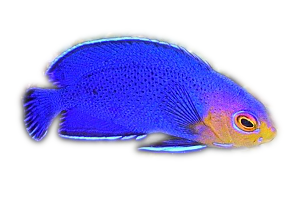
By Bob Goemans

Dear Mr. Goemans,
I thoroughly enjoy your Sand Mail column in FAMA each Month. Thanks for always wonderful information. My question is unrelated to sand beds, but I turn to you with faith that with your experience you can provide some answers.
I have been using multi-socket power cords in the stand of my 125 gal reef tank. One recently burned out and I have to replace it. The problem is that all the multi-sockets and surge protectors I find say at least "not for wet or damp areas." Some, such as one model on sale at a pet shop, specifically state "Should not be used with aquariums." Even hardware stores' power tool 'built tough' extension cords say the same things. What's a fellow to do? Are these statements similar to "Don't fold baby stroller up with baby in it" as a way to protect the maker? Or, are these extension cords more sensitive to moisture? My tank stand is not wet, damp or moist. However, there is a sump down there, too, which may raise the humidity slightly above the normal room humidity. Would this have a negative impact on a multi-socket? I use GFIs.
I use three 6 or 7 socket cords. One with a 7' cord to reach the wall electric outlet (which also has a wave maker and heater, winter only, plugged in) with a chiller, small air pump (fresh air to the sump), and small light (so I can see better in there) on it and the two other cords. The second cord has a timer for my two VHO actinic lights and cooling fan, and another timer for the two daylight bulbs. The timers cover up most of the individual sockets and I can control the lights better on a separate switch. The third cord only has a wave maker and the water pump on it which allows easy on-off control when I am working in the tank or feeding.
Obviously, dripping/cascading water into any electric socket is bad. But, are manufacturers being overly cautious with their products by saying not to use them with aquariums? If a cord doesn't say that, does it mean that it could be used, or just that the maker hasn't gotten around to listing such factors? Are there sockets out there that are designed for aquarium use? I have seen the Natural Wave Timer, but don't need more wavemaking capability and just three additional sockets aren't enough.
Thanks in advance for any advice you can provide.
Harry Haley
Yorktown, Va.
Hi Harry,
Ever heard the term 'CYA?' Ever hear of 'Lawyers?' They go hand-in-hand!
Its not that these devices are more sensitive to water, it's just that water and electricity don't mix!
It probably goes without saying that one needs to figure out the total amount of electrical draw on a particular circuit before plugging in a lot of devices. Each home circuit is probably rated at 1500 watts and/or so many amps. You first need to know how many outlets in your home are on the circuit where you aquarium devices are plugged in. could be a total of 8 outlets. Could be there are other outlets on this circuit being used for a TV or other devices. Total up the consumption of all these devices and if at any one time they would exceed the rating of the circuit, something has to be taken out of service.
If you plug in devices requiring more than that, the wiring supplying that electricity will get hot. Yes, there's a certain amount of overage each circuit can draw before its tripped, but sometimes these circuit breakers or safety deices don't work and a fire results.
And, whether marked or not, all plugs at sensitive to moisture. And moisture condenses and if enough gets inside an electrical plug, there's going to be a short. Having a GIF circuit for your aquarium devices is the smart way to go!
And there are not generally available moisture proof sockets, however, they are probably available at a high price. Where, I'm not sure, but you could do an internet search. Possibly coating the socket with silicon might prevent moisture from entering - jus a thought.
Cheers,
Bob